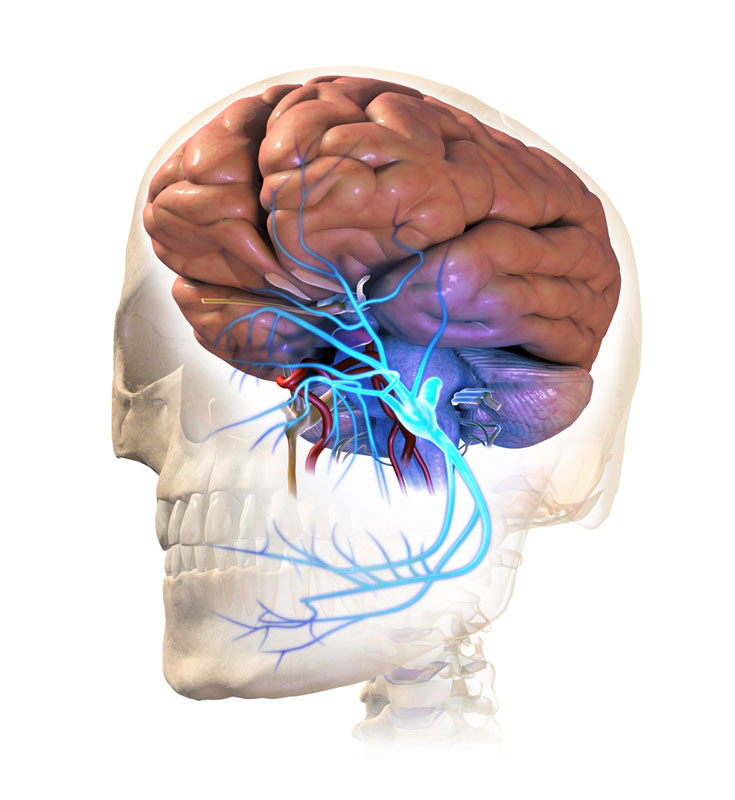Kalra Brain & Spine
At KBS, we treat our patients as neighbors, friends, and family. Our goal is to educate you, treat your symptoms, and help you recover as fast as possible
Trigeminal Neuralgia
Trigeminal neuralgia is a chronic pain condition that affects the trigeminal nerve, which carries sensation from your face to your brain. If you have this condition, even mild stimulation of your face — such as from brushing your teeth or putting on makeup — can trigger excruciating pain. You may initially experience short, mild attacks. But trigeminal neuralgia can progress and cause longer, more-frequent bouts of searing pain.
Symptoms
- Severe, shooting or jabbing pain that may feel like an electric shock
- Spontaneous attacks of pain triggered by things such as touching the face, chewing, speaking or brushing teeth and lasting from a few seconds to several minutes
- Constant aching, burning feeling that may occur before it evolves into the spasm-like pain of trigeminal neuralgia
- Pain in areas supplied by the trigeminal nerve, including the cheek, jaw, teeth, gums, lips, or less often, the eye and forehead
- Pain affecting one side of the face at a time, though may rarely affect both sides of the face
- Pain focused in one spot or spread in a wider pattern
- Attacks that become more frequent and intense over time
Risk Factors/Causes
In trigeminal neuralgia, the trigeminal nerve’s function is disrupted. Usually, the problem is contact between a normal blood vessel and the trigeminal nerve at the base of your brain. This contact puts pressure on the nerve and causes it to malfunction.
Trigeminal neuralgia can occur as a result of aging, or it can be related to multiple sclerosis or a similar disorder. Trigeminal neuralgia can also be caused by a tumor compressing the trigeminal nerve. Some people may experience trigeminal neuralgia due to a brain lesion or other abnormalities. In other cases, surgical injuries, stroke or facial trauma may be responsible for trigeminal neuralgia. Trigeminal neuralgia affects women more often than men, and it’s more likely to occur in people who are older than 50.
Treatment Options
Trigeminal neuralgia treatment usually starts with medications, and some people don’t need any additional treatment. If medication fails to help or if side effects are too severe, injections or surgery may be considered.
Medications
- Anticonvulsants
- Antispasmodics
- BOTOX® injections
Surgery
- Microvascular Decompression
- Brain Stereotactic Radiosurgery (Gamma knife)
- Rhizotomy (destroying nerve fibers to reduce pain)
When world-class training meets hometown values deeply rooted in family and community, the result is the kind of medical care you’ve always hoped for. This describes Kalra Brain & Spine, the practice of Dr. Ricky Kalra, who specializes in the most up-to-date evidence-based neurological care. If your condition requires neurosurgery, schedule a consultation with Dr. Kalra today.
Request an Appointment
Contact us
Get In Touch
Address
Kalra Brain & Spine
5899 Preston Road
Suite 1303
Frisco, TX 75034
Phone
972-905-9226

Fax
972-905-9269

